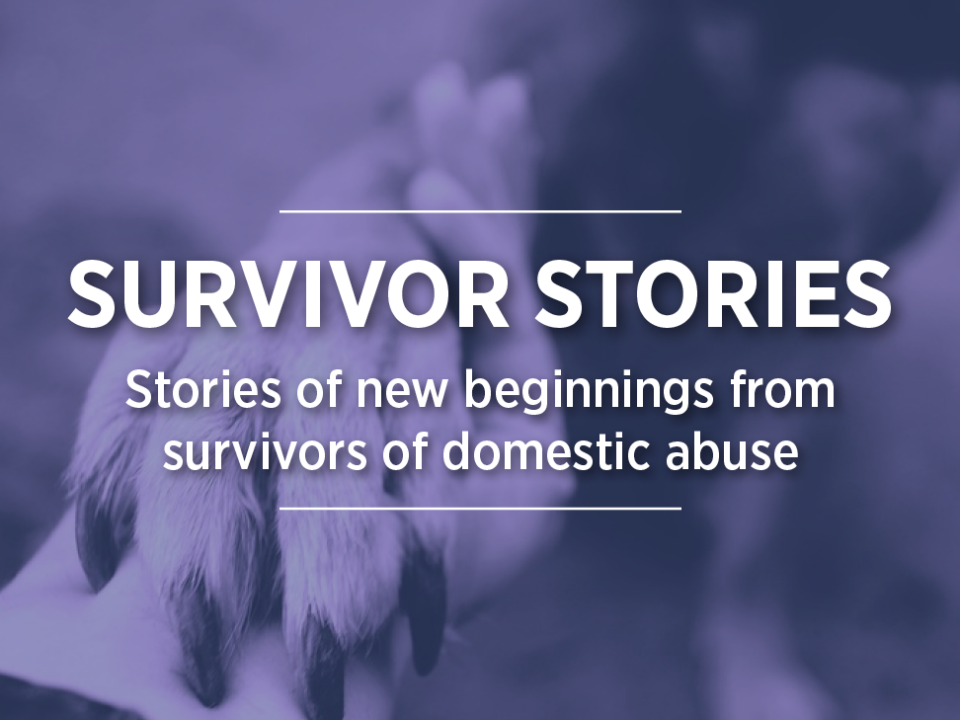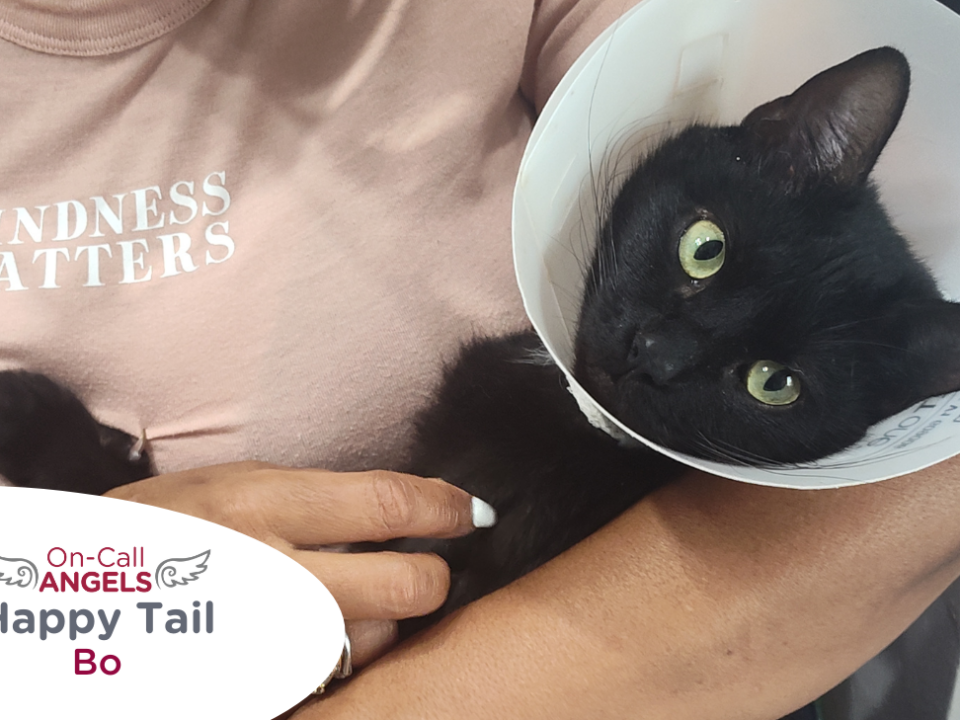Jessica and Clover’s Survivor Story
November 30th, 2023
By Savannah Verdon, Development and Engagement Coordinator II
Like so many veterans coming home from their service, Jessica* struggled with the symptoms of post-traumatic stress disorder. And like so many veterans before her, it was the love of a pet that helped alleviate those symptoms. With her cat Clover* by her side, she could turn the page on that difficult time and begin a new chapter in peace.
Because Clover had brought love and joy back to her heart, Jessica felt ready for a relationship too. Sometime after meeting her partner, she came to realize that he suffered from addiction. By itself, addiction is not a reflection of someone’s character, but inflicting violence is. Jessica chose to stay at first to support her partner through his addiction, as kind and loving partners often want to do. While under the influence he had begun to threaten and intimidate her, even threatening death. Worse still, in Jessica’s mind, he would kick at Clover, stopping short of physically harming her but enjoying how much this scared Jessica. It was only a matter of time before he made good on any of his threats.
Jessica was ready to leave. After all the growth and healing she’d accomplished since leaving the military, she refused to live another day in terror. But she refused as well to leave without Clover. If he somehow found out that she was planning to leave, there was no telling what he would do if he felt he could no longer control her. His addiction, after all, made him erratic. And if she left without Clover, she was certain he would hurt Clover without being there to protect her. He might even kill her. That sweet cat had saved her life, now it was her turn to save Clover – even if that meant enduring the violence until she had a plan to save them both.
She took the first step and called her local domestic violence shelter’s hotline. Clover wouldn’t be able to stay with her at the shelter, but the advocate she spoke with assured her that her plan wouldn’t end there. Understanding the urgent situation, the shelter paid for Jessica and her cat to stay in a hotel until they could secure a safe place for Clover.
Jessica would be the fifth survivor for whom the advocate would apply for a RedRover Relief Safe Escape grant, a lifesaving resource they were grateful to add to their arsenal of support. After making arrangements with a local pet boarding facility, the advocate could relay the welcome news that their grant had been approved. Jessica and Clover would both be safe.
The Safe Escape grant had lifted not only a financial burden off Jessica’s shoulders but the weight of worrying about little Clover too, which Jessica described as “pleasant.” After two months in the domestic violence shelter, she was able to find a home for them to share. All that was left for their next chapter, finally one of peace, was to be reunited. Her advocate reached out to RedRover to express their appreciation now that this family had been kept whole in their moment of crisis:
“In my four years of advocacy, I was ecstatic when I found out that I could offer my survivor help to leave safely along with their pet. So many women stay because shelters don’t allow pets to come and the Safe Escape program has saved so many lives. I have used the program for about five women now and I hope it goes on and on as another way to save lives around the world.”
The RedRover Relief Safe Escape grant program has saved so many lives because of people like you who understand that pets are family and that our bonds with animals must be protected. We hope you’ve enjoyed reading the Survivor Stories series – a new addition to our blog this year. Peering into the lives of domestic violence survivors and their pets both strengthens our empathy and reminds us why these grants, the Purple Leash Project, and the 25 by 2025 campaign are so important for a kinder, more compassionate world. We look forward to sharing many more Survivor Stories in 2024. Thank you for helping us make a lifesaving difference!
*Names have been changed to protect privacy



